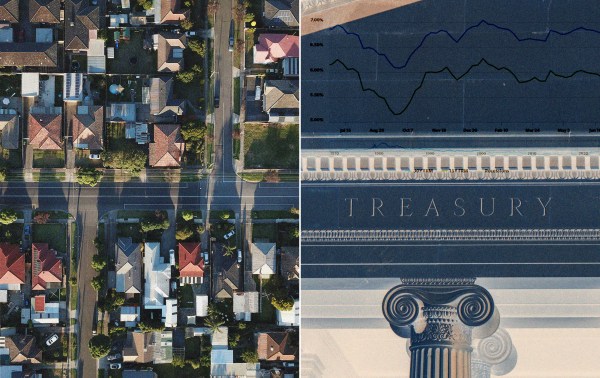Happy Friday from Washington, D.C., where the world’s greatest deliberative body powered through this week and managed to find a short-term solution to a manufactured crisis.
GOP Rift With U.S. Chamber Widens
For much of the year, progressive Democrats and a sizable portion of Senate Republicans have been on the same page about one thing: They calculated that if a bipartisan bill focused on traditional infrastructure items like roads, bridges, and airports were to pass Congress, it would reduce the chances that a sweeping social investments bill would pass with only Democratic votes later.
If moderate Democrats like Sens. Joe Manchin and Kyrsten Sinema achieved many of their infrastructure priorities in a bipartisan bill, the reasoning goes, Democratic leaders would have less leverage to win their support for a far more progressive measure advanced through the budget reconciliation process. With a narrow majority in the House and an evenly split Senate, these dynamics could make or break some of President Joe Biden’s biggest agenda items, including tax hikes for the wealthy, climate change provisions, two years of tuition-free community college, and universal prekindergarten. This fear is what prompted progressives to unite and delay a scheduled House vote on the $1.2 trillion bipartisan infrastructure package last week.
But top House Republicans did not reach the same conclusion about the dynamics. Instead of encouraging their members to vote however they’d like on the bipartisan measure—potentially overcoming progressive opposition—GOP Leader Kevin McCarthy and his deputies firmly whipped against the package leading up to the expected week of the vote. They argued the bill is inextricably linked to the larger Democratic reconciliation effort, meaning their members should vote against both.
The stance added pressure to Republicans’ already rocky relationship with the U.S. Chamber of Commerce, the powerful business lobby that has largely supported GOP candidates and causes over the past two decades. The Chamber supports the bipartisan infrastructure package but firmly opposes the larger $3.5 trillion reconciliation effort.
House Republican leaders have clashed with the Chamber over their differing strategies in recent months, including thinly veiled snipes in meetings with other industry groups and confrontational tweets from senior Hill staffers. After a top Chamber official excoriated Republicans for opposing the bipartisan infrastructure bill last week, the schism widened: House GOP leaders kicked the Chamber out of a weekly coalition call with business associations and escalated their rhetoric against the organization.
“People care what their local Chambers of Commerce and business owners have to say, not the U.S. Chamber,” Brett Horton, chief of staff to House Minority Whip Steve Scalise, told The Hill. “If the U.S. Chamber sent me a meeting request right now, I wouldn’t even staff that meeting out to an intern, and I don’t see that changing.”
The feud is close to home for House Republicans. The Chamber endorsed 23 incumbent House Democratic freshmen in the 2020 election, enraging Republican leaders who typically counted on its steadfast GOP support. At the time, Senate Republican Leader Mitch McConnell suggested the Chamber was irrelevant, and McCarthy said he didn’t want their endorsement any longer.
McCarthy brought it up again last week: “I don’t know that the Chamber’s an ally when they endorsed all the Democrats in the last election,” the California Republican told reporters. “I think they probably changed.”
He went even further a few days ago, telling Punchbowl News that he “didn’t even know the Chamber was around anymore.”
In an interview with The Dispatch Thursday, Neil Bradley, executive vice president and chief policy officer for the Chamber, downplayed the impact of being booted from the weekly coalition call.
“We do continue to talk to both House and Senate Republican leaders and rank and file about a whole host of issues,” he said. “But the coalition meetings in question are about defeating the reconciliation bill. The interesting thing is that no Republican vote is in play or in doubt on the reconciliation bill.”
“The votes who will decide whether this three and a half trillion plus dollar proposal becomes law are all on the Democratic side,” Bradley added. “What we’ve been doing at the Chamber is we’re focused on educating and winning the votes of those Democrats whose votes will decide. And that was occurring before any coalition started, during any coalitions, and we’re at it every day. So it hasn’t changed anything that we’re doing, because we have the ability to go talk to pro-business Democrats and to make the case that this is bad for their constituents and for the economy.”
The Chamber recently launched an advertising campaign urging five moderate Democrats to oppose the reconciliation bill.
Asked what happened on the House GOP coalition calls each week, Bradley answered, “In honesty, not a lot.”
One regular attendee of the calls from a different organization who spoke on the condition of anonymity told The Dispatch the meetings are almost always run by GOP committee and leadership staff, who give an update on the reconciliation effort. Then, there’s a portion during which lobbyists ask questions of staff and the industry groups share what they are doing to push back on the $3.5 trillion package.
“A lot of it is both coordinating and sort of sharing grassroots activity,” the attendee said. “A lot of it’s kind of like a brag session.”
Bradley, a longtime House Republican leadership staffer prior to joining the Chamber, used to work for McCarthy. He said the Chamber is facing a changing political environment with the rise of populist sentiment on the right.
“There are both challenges from the progressive left, clearly to capitalism, but populism also poses challenges to the free market system,” Bradley said. “When we think about our charge, our charge is kind of preserving the free market as an engine for economic job creation and prosperity. And so we’re concerned about both extremes.”
During the interview, Bradley also made the case that House Speaker Nancy Pelosi would have held a vote on the bipartisan infrastructure bill last week if GOP leaders had not whipped their members against it and if it had been clear there were enough Republican votes to balance progressive opposition. “She would have had to have held the vote,” he said.
Bradley stood by his reasoning that passage of the bipartisan package would have lessened the chances of the larger progressive bill passing.
“Every majority needs to have accomplishments,” he said. Giving members the ability to go home to their districts and talk about roads and bridges would mean “there’s less pressure to pass the reconciliation bill.”
Second, he said, the bipartisan infrastructure package demonstrates bipartisan legislating is still possible.
The bill, which passed the Senate earlier this summer, includes $110 billion for roads, bridges, and other key projects. It invests $39 billion in public transit, $66 billion in rail, and $65 billion to expand access to high-speed internet. The bill would also get rid of lead water pipes across the country and includes provisions to boost electric vehicle infrastructure. It also directs $65 billion to the nation’s power grid, among other items. (Two of my former colleagues at CNN have a helpful breakdown of it here.)
“When you think about the Democrats whose votes will make the difference on whether reconciliation passes or not, those members are the ones who are most often saying they want to see Congress function outside of these party line votes, i.e. in a bipartisan process,” Bradley told The Dispatch. “If you take that away and say, ‘Nope, the only way to ever do anything anymore is through party line reconciliation processes,’ you’re basically inviting reconciliation.”
Asked by reporters last week why he didn’t reach the same conclusion as progressives and top Senate Republicans that passage of the bipartisan bill could hamper the broader Democratic agenda, House GOP Leader Kevin McCarthy didn’t give a direct answer.
“I think they’re wrong,” he said.
He reiterated his concern that the two bills are linked and said that even if they weren’t, he would have liked more committee involvement in the legislation. (Former President Donald Trump has also vocally opposed the legislation since senators struck the deal.)
Despite their public spats, the Chamber still plans to work with Republicans where they agree, Bradley said.
“We’re focused on doing the work on behalf of our members, and in particular, doing the work where we’re aligned. And so the biggest issue that we’re facing, that I think the Republican leadership is facing, is the reconciliation—the prospects of something like that passing,” he said. “And on that we’re completely aligned, and we’re doing everything we can to beat it.”






Please note that we at The Dispatch hold ourselves, our work, and our commenters to a higher standard than other places on the internet. We welcome comments that foster genuine debate or discussion—including comments critical of us or our work—but responses that include ad hominem attacks on fellow Dispatch members or are intended to stoke fear and anger may be moderated.
With your membership, you only have the ability to comment on The Morning Dispatch articles. Consider upgrading to join the conversation everywhere.